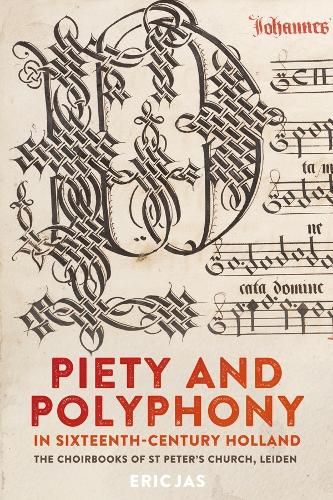Readings Newsletter
Become a Readings Member to make your shopping experience even easier.
Sign in or sign up for free!
You’re not far away from qualifying for FREE standard shipping within Australia
You’ve qualified for FREE standard shipping within Australia
The cart is loading…






The musical culture of the Low Countries in the early modern period was a flourishing one, apparent beyond the big cathedrals and monasteries, and reaching down to smaller parish churches. Unfortunately, very few manuscripts containing the music have survived from the period, and what we know rests to a huge extent on six music books preserved from St Peter’s Church, Leiden.
This book describes the manuscripts, their provenance, history and repertory, and the zeven-getijdencollege, the ecclesiastical organisations which ordered the music books, in detail. These organisations have their roots in fifteenth-century piety, founded on the initiative of individuals and townadministrators throughout Holland, principally to ensure that prayers and Masses were said for those in the afterlife. Music, both chant and polyphony, played an important part in these commemorative practices; the volume also looks at the choristers and choirmasters, and how such services were organised.
ERIC JAS is a lecturer in music at the university of Utrecht.
$9.00 standard shipping within Australia
FREE standard shipping within Australia for orders over $100.00
Express & International shipping calculated at checkout
The musical culture of the Low Countries in the early modern period was a flourishing one, apparent beyond the big cathedrals and monasteries, and reaching down to smaller parish churches. Unfortunately, very few manuscripts containing the music have survived from the period, and what we know rests to a huge extent on six music books preserved from St Peter’s Church, Leiden.
This book describes the manuscripts, their provenance, history and repertory, and the zeven-getijdencollege, the ecclesiastical organisations which ordered the music books, in detail. These organisations have their roots in fifteenth-century piety, founded on the initiative of individuals and townadministrators throughout Holland, principally to ensure that prayers and Masses were said for those in the afterlife. Music, both chant and polyphony, played an important part in these commemorative practices; the volume also looks at the choristers and choirmasters, and how such services were organised.
ERIC JAS is a lecturer in music at the university of Utrecht.